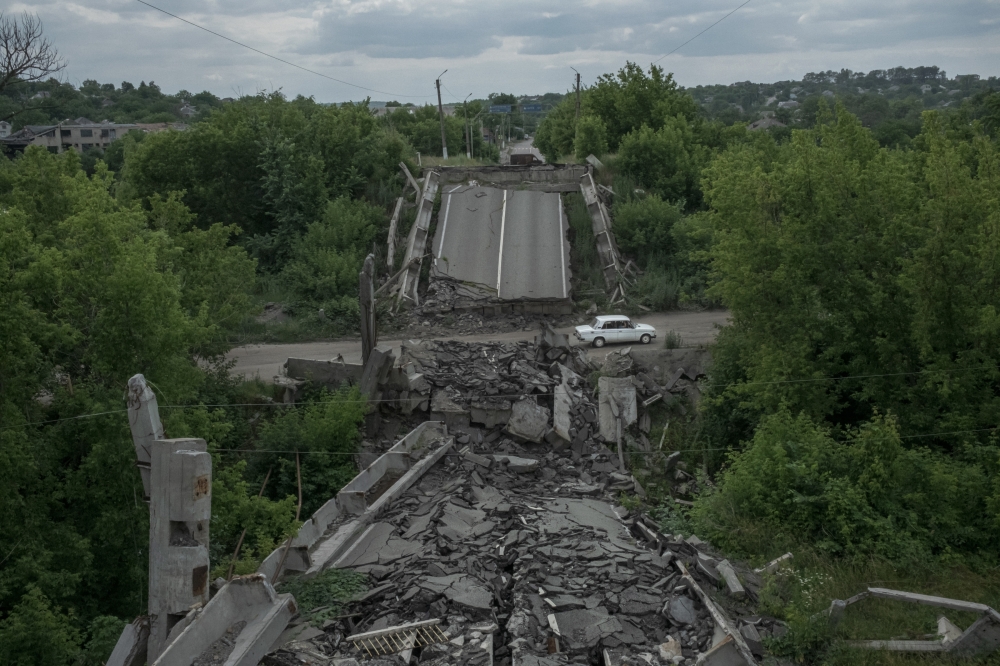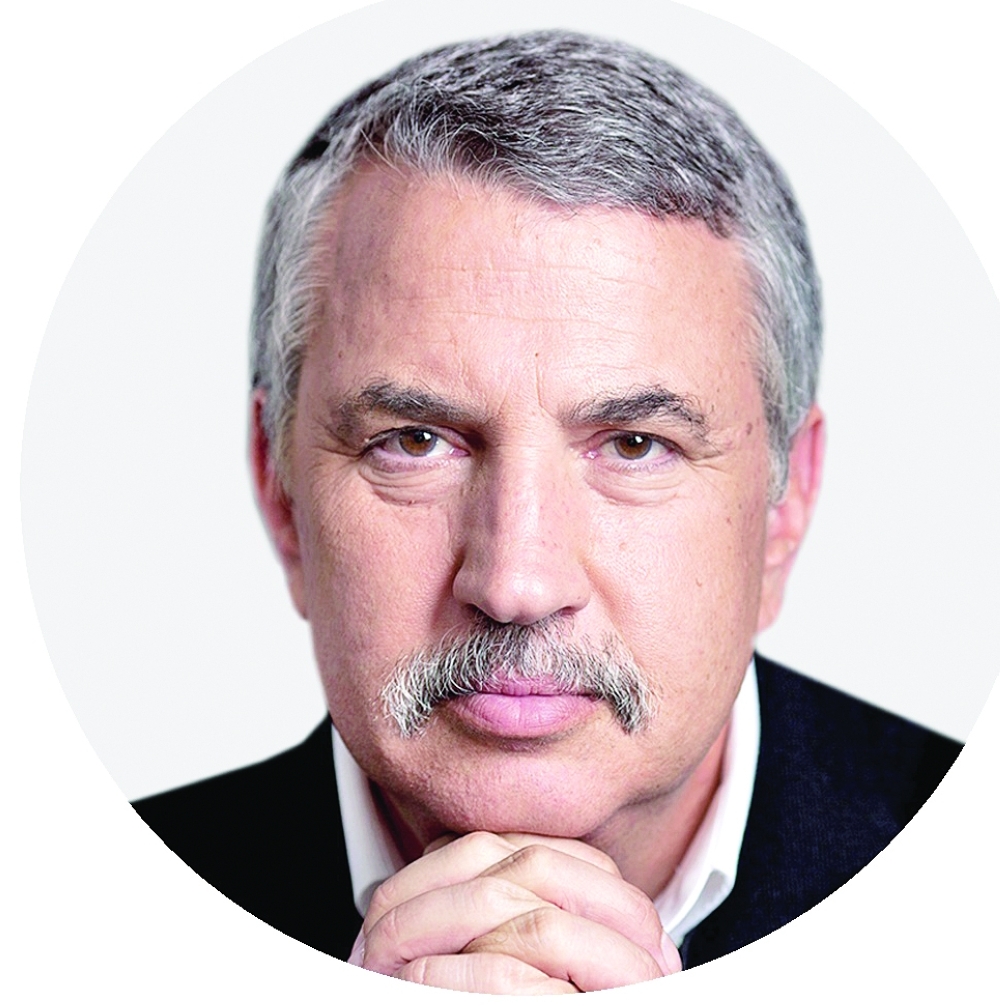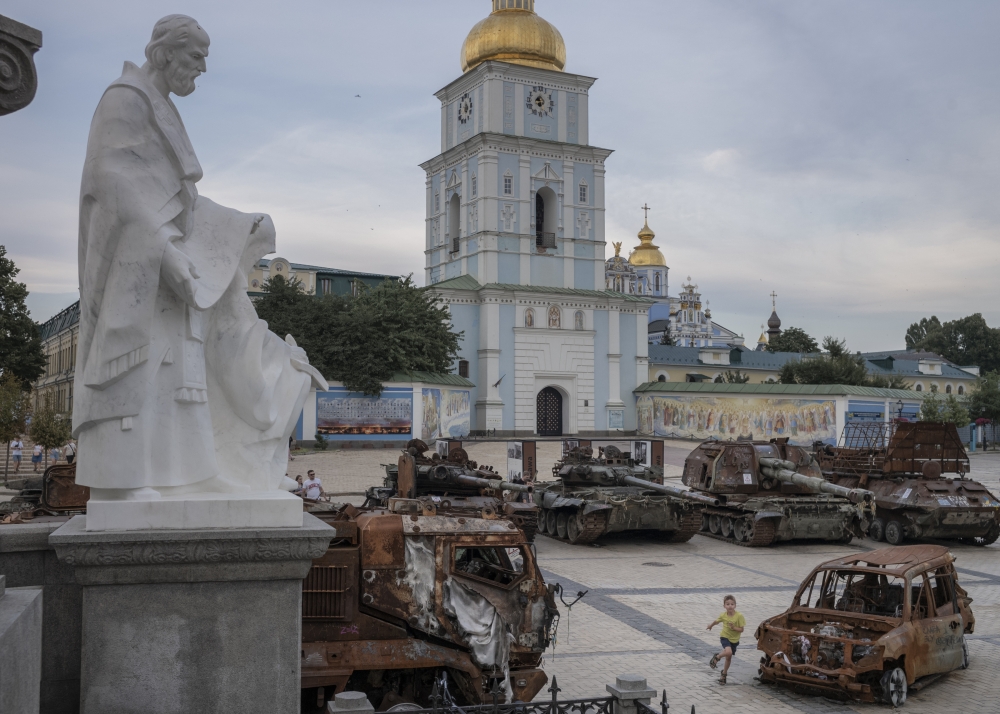

While visiting Kyiv this month, my first trip to Ukraine since Vladimir Putin’s invasion in February 2022, I tried to get my exercise every morning by walking the grounds of St Michael’s Golden Domed Monastery. Its serenity, however, has been disrupted by a jarring exhibit of destroyed Russian tanks and armored personnel carriers.
During my walks, I’d poke my head into these jagged, rocket-pierced hulks, wondering what a terrible death must have come to the Russian soldiers operating them.
But the shock of this tangled mass of rusting steel, sitting in the middle of this grand, whitish-stone piazza, evoked a different image in my mind’s eye: a meteor.
It looked as if a giant meteor had plummeted from space, disrupting life as we knew it — nearly eight decades without a “great power” war in Europe, a continent where centuries of invasions and conquest had given way to security and prosperity. Now we have this ugly pile sitting here in our midst, smoldering, and we, Ukrainians and the world community, are struggling with how to deal with it.
Nearly every Ukrainian I spoke to in Kyiv was at once exhausted by the war and passionately determined to recover every inch of their Russian-occupied territory — but no one had clear answers about the road ahead, the painful trade-offs that await, only certainty that defeat would mean an end to Ukraine’s democratic dream and a smashing of the post-World War II era that had produced a Europe more whole and free than ever before in its history.
What Putin is doing in Ukraine is not just reckless, not just a war of choice, not just an invasion in a class of its own for overreach, mendacity, immorality and incompetence, all wrapped in a farrago of lies. What he is doing is evil.
He has trumped up any number of shifting justifications — one day it was removing a Nazi regime in power in Kyiv, the next it was preventing Nato expansion, the next it was fending off a Western cultural invasion of Russia — for what ultimately was a personal flight of fancy that now requires his superpower army turning to North Korea for help. It’s like the biggest bank in town having to ask the local pawnshop for a loan. So much for Putin’s bare-chested virility.
What is so evil — beyond the death and pain and trauma and destruction he has inflicted on so many Ukrainians — is that at a time when climate change, famine, health crises and so much more are stressing planet Earth, the last thing humanity needed was to divert so much attention, collaborative energy, money and lives to respond to Putin’s war to make Ukraine a Russian colony again.
Putin lately has stopped even bothering to justify the war — maybe because even he is too embarrassed to utter aloud the nihilism that his actions scream: If I can’t have Ukraine, I’ll make sure Ukrainians can’t have it, either.
“This is not a war in which the aggressor has some vision, some outline of the future. Rather, on the contrary, for them, everything is black, formless, and the only thing that matters is force,” Timothy Snyder, the Yale historian, remarked on a panel we did together at a conference in Kyiv last weekend.
Being in the city has been clarifying for me in three regards. I understand even better just how sick and disruptive this Russian invasion is. I understand even better just how hard, maybe even impossible, it will be for Ukrainians to evict Putin’s army from every inch of their soil.
Perhaps most of all, I understand even better something that former US national security adviser Zbigniew Brzezinski observed almost 30 years ago: “Without Ukraine, Russia ceases to be an empire, but with Ukraine suborned and then subordinated, Russia automatically becomes an empire.”
Most Americans don’t know a lot about Ukraine, but I say this without any hyperbole: Ukraine is a game-changing country for the West, for better or for worse depending on the war’s outcome. Its integration into the European Union and Nato someday would constitute a power shift that could rival the fall of the Berlin Wall and German unification.
Ukraine is a country with impressive human capital, agricultural resources and natural resources — “hands, brains and grains,” as Western investors in Kyiv like to say. It’s full-fledged integration into Europe’s democratic security and economic architecture would be felt in Russia and China.
Putin knows that. His war, in my view, has never been primarily about countering Nato expansion. It has always been much more about stopping a Slavic Ukraine from joining the European Union and becoming a successful counterexample to Putin’s Slavic thieving autocracy. Nato expansion is Putin’s friend; it allows him to justify militarizing Russian society and to present himself as the indispensable guardian of Russia’s strength.
EU expansion to Ukraine is a mortal threat; it exposes Putinism as the source of Russia’s weakness. And the Ukrainians I met seemed to understand that they and Europe were bound up together in an epochal moment against Putinism — a moment, though, that cannot succeed without a steadfast United States.
Which is why one of the most frequent — and worried — questions I got on my visit were variations of “Do you think Putin’s pal Trump can be president again?” - The New York Times
The writer is an American political commentator and author
Oman Observer is now on the WhatsApp channel. Click here





